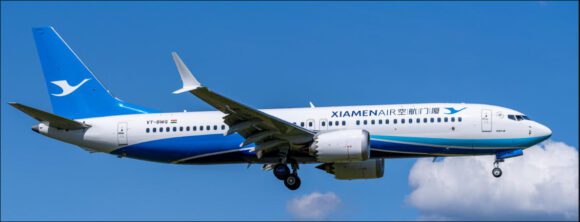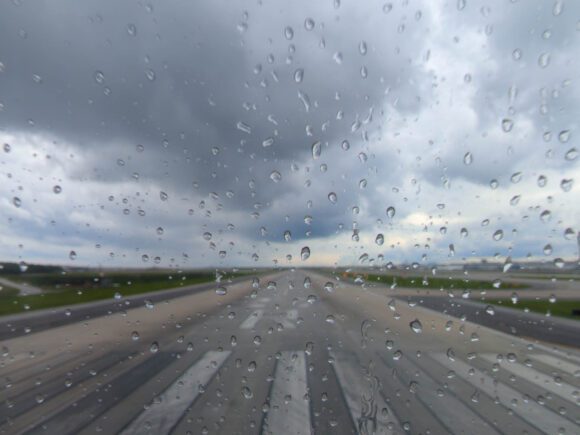The WTO Appeals Panel released its public version of the review of the original WTO Findings on the EU complaint about Boeing illegal subsidies.
Both the European Union and the US Trade Representative claimed victory, as did Airbus and Boeing.
Here is the Airbus press release:
- Appeal Report confirms and extends the WTO’s condemnation of massive illegal subsidies to Boeing
- Appellate Body rejects nearly 90% of US appeals of the WTO’s earlier findings while validating 100% of EU appeals
- Loss of roughly $45 billion in Airbus sales due to illegal Boeing subsidies
- B787 is the most heavily subsidized aircraft in aviation history
Today’s report from the World Trade Organization (WTO) Appellate Body (DS353) confirms and extends previous WTO findings. The report confirms the existence of illegal U.S. subsidies to Boeing – previously identified by the WTO as “at least $5.3 billion” and extended by billions of US dollars as a result of today’s decision – resulting in an estimated loss of approximately $45 billion in sales for Airbus. Despite earlier Boeing claims that only minimal actions to comply with WTO rules were necessary, it has become clear today that Boeing will have to make major changes to comply with this final WTO ruling.
“The Appellate Body has now spoken in both the Airbus and Boeing cases,” said Rainer Ohler, Airbus’ Head of Public Affairs and Communications. “Comparing the core claims made by both sides, the net outcome is clear: Boeing’s cash grants are fundamentally illegal, while the system of loans to Airbus by European governments is legal and may continue. Boeing and the U.S. now will have six months to implement the WTO decision.”
Today’s decision is a broad repudiation of the US’s arguments in this case – rejecting every single US appeal regarding the subsidies given to Boeing and nearly all of its appeals as to the competitive harm that those subsidies impose, while accepting every single EU point of appeal.
The WTO Appellate Body’s report highlights the scale of illegal support to Boeing funded by U.S. taxpayers. The final decision confirms the facts already available from the previous Panel Report:
- Boeing received “at least $5.3 billion” of U.S. taxpayer dollars, determined to be illegal.
- Boeing is set to receive at least an additional $2 billion in illegal state and local subsidies in the future under existing illegal schemes.
- The effect of the subsidies is significantly larger than their face value in light of their “particularly pervasive” nature.
- These pervasive subsidies have thoroughly distorted competition within the aviation industry, directly resulting in significant harm to the European aerospace industry.
- Boeing would not have been able to launch the 787 without illegal subsidies.
“Consequently, the B787 – previously known as the “Dreamliner” – is now to be called the “Subsidy-liner” (B7aid7). The WTO ruling proves it is the most highly subsidized aircraft in the history of aviation”, commented Airbus’ Ohler.
Today’s report also expands on earlier WTO findings to reveal additional illegal and anti-competitive features of the support provided to Boeing. Specifically, the WTO Appellate Body agrees with the European Union that:
- Every single one of the 23 U.S. Department of Defense (DOD) and all eight of the NASA research grant programs are illegal subsidies..
- The U.S. Government’s many transfers to Boeing of intellectual property rights for technology developed at U.S. taxpayers’ expense were illegal subsidies.
- The WTO also embraced the EU appeal by determining that an additional approximately $500 million in state and local support from Kansas are also illegal subsidies that must be withdrawn.
“Boeing and the U.S. only have six months to end decades of illegal corporate welfare for Boeing and fundamentally change the way the U.S. Government supports the commercial aerospace business: a disappointing outcome for those who launched this battle. Without compliance, massive sanctions will result – conclusively dispelling the U.S. and Boeing’s public smokescreen that the WTO’s findings will have no relevant consequences for Boeing,” Airbus’ Ohler concluded.
******
But the view from the US is rather different. The US said the WTO ruling put illegal aid to Boeing at between $3 billion and $4 billion and lost Airbus sales of about 100 aircraft. The US Trade Representative’s Office said the WTO appellate judges sided with the U.S. over illegal government subsidies to Boeing. The WTO’s Appellate Body “rejected claims that the US has provided massive trade-distorting subsidies to Boeing and affirmed a dispute-settlement panel’s report finding that most of the programs challenged by the EU were not subsidies,” the USTR said today in a statement. US Trade Representative Ron Kirk called the ruling a “tremendous victory for American manufacturers and workers.”
Here is Boeing’s press release:
“The Appellate Body today slashed earlier findings of harm to Airbus from U.S. subsidies. The decision confirms that in terms of amount, effect and nature, U.S. government support to Boeing is minimal in comparison to the massive European subsidies provided Airbus.
With respect to amount, the Appellate Body found that unaddressed subsidies to Boeing total approximately $3 billion – about one-sixth of the $18 billion Europe has given to Airbus.
With respect to effects, the Appellate Body rejected 66% of the EU’s claims that Airbus had lost sales as a result of U.S. subsidies and more than 93% of its claims that it had lost market share. Boeing has had to compete with an entire fleet of subsidized Airbus aircraft that the WTO found would most likely not even exist without illegal launch aid, while Airbus competes against a Boeing product line that received little support from the U.S. government according to today’s ruling.
With respect to nature, the WTO found that launch aid was a pernicious, market-distorting subsidy without which Airbus itself would most likely not have existed and no Airbus aircraft would have been built at all. By contrast, the WTO has now found that Boeing has received little U.S. government support during the same time period since the formation of Airbus.
In sum, the WTO decisions in the two cases establish conclusively and finally that European subsidies competitively disadvantage Boeing and American workers and will continue to do so until launch aid is eliminated.
We appreciate the work of the WTO Appellate Body, and we are prepared to work with the U.S. government as it determines what steps, if any, are necessary to address the WTO’s decision. Boeing is fully committed to compliance with WTO rules.
Airbus has not shown the same commitment to compliance with the WTO’s decisions and rules. The EU had until Dec. 1, 2011, to comply with the ruling against the illegal Airbus subsidies, and it refused to comply. Airbus continues to benefit from billions of dollars of government loans that do not carry commercial terms and that the WTO found to be illegal market-distorting subsidies. What’s more, European governments have recently provided billions of dollars in new launch aid for the next Airbus model, the A350, continuing this illegal practice in defiance of the WTO.
The U.S. government has made it clear that it will use all of the WTO tools at its disposal to ensure that European governments comply with last year’s ruling – particularly the ruling against $15 billion in illegal launch aid, the pernicious subsidy unique to Airbus. Boeing supports and appreciates the strong stance the U.S. Trade Representative has taken to force European compliance and finally insist upon the level playing-field necessary for fair and open global competition.”
Our take: Both sides claim victory. Both sides will probably continue to do what they do now.
Views: 0




This dispute has been going on for a while and will continue until all legal sources are exhausted. I really think both parties are alike here. Something a lot of people forget however is that Airbus is paying back the loans + a surplus for every plane sold. Considering the successful A320 and A330 programs, this amount is considerable. If you add these amounts to the interest paid, the loan isn’t all that advantageous any more, and might be close to market conditions. What it does do however is give Airbus the opportunity to manage the risks in a favorable way, and yes, this is worth some money too. Any way, whatever the outcome of the ruling. It will only change the way those company’s are supported by governments, not the amounts. In the mean time, China and Russia are looking to get some market share. And guess what, those programs are heavily government-supported too.